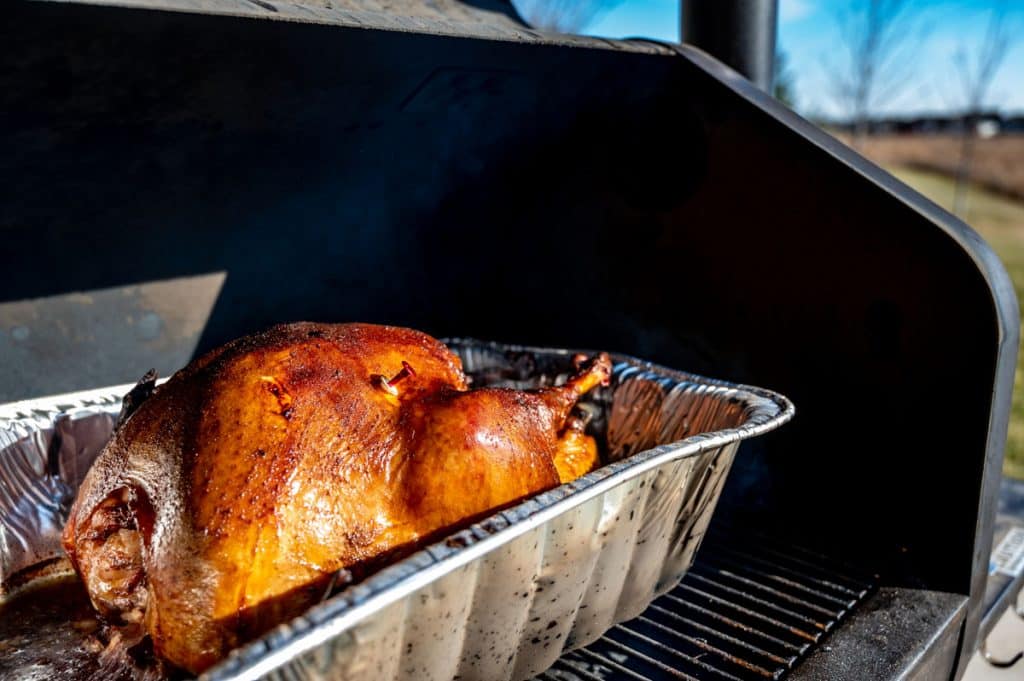Letting your turkey rest might seem like a minor step in the grand scheme of holiday cooking, but it plays a critical role in ensuring your bird is juicy, flavorful, and perfectly tender. For many home cooks, the temptation to carve into the turkey as soon as it comes out of the oven is overwhelming. However, understanding the science behind why letting your turkey rest is essential can make all the difference in your holiday meal. This simple yet crucial step helps retain moisture, allows the flavors to meld, and ensures an evenly cooked bird that will leave your guests raving.
In today's fast-paced world, where convenience often trumps tradition, it's easy to overlook the importance of small but impactful cooking techniques. Letting your turkey rest is one such technique that has stood the test of time. It's not just about waiting for the bird to cool; it's about giving the proteins time to relax, the juices to redistribute, and the flavors to deepen. By incorporating this step into your cooking routine, you're not only improving the quality of your turkey but also honoring culinary traditions that have been passed down through generations.
As we delve deeper into the nuances of why letting your turkey rest is so important, we'll explore the science behind it, provide practical tips, and answer common questions that many cooks have. Whether you're a seasoned chef or a novice in the kitchen, this guide will equip you with the knowledge and confidence to serve a turkey that's as delicious as it is visually appealing. So, let's dive in and uncover the secrets to making your Thanksgiving feast unforgettable.
Read also:Emma Myers Height In Feet A Comprehensive Guide
Why Should You Let Turkey Rest?
Have you ever wondered why your turkey sometimes turns out dry despite your best efforts? The answer often lies in whether you allowed it to rest properly. When you roast a turkey, the juices inside are pushed toward the center due to the high heat. If you carve into the bird immediately, these juices will spill out, leaving you with a less juicy and flavorful result. By letting your turkey rest, you allow the juices to redistribute throughout the bird, ensuring every slice is as succulent as the last.
How Long Should You Let Turkey Rest?
One of the most common questions home cooks have is, "How long should I let my turkey rest?" The general rule of thumb is to let it rest for about 20 to 30 minutes after it comes out of the oven. This time allows the juices to settle and the proteins to relax, resulting in a more tender and flavorful turkey. While it may seem like a long wait, especially when the aroma of roasted turkey fills your kitchen, patience truly pays off in this case. During this time, you can prepare your side dishes or set the table, ensuring everything is ready when it's time to serve.
What Happens If You Don't Let Turkey Rest?
If you skip the resting step, you risk losing those precious juices that give your turkey its juiciness and flavor. Without resting, the proteins in the turkey remain tight, and the juices are more likely to escape when you carve into the bird. This can lead to a drier texture and a less satisfying eating experience. By understanding what happens during the resting process, you can appreciate why this step is so vital and make it a non-negotiable part of your cooking routine.
Does Letting Turkey Rest Make a Difference?
The short answer is yes, letting your turkey rest absolutely makes a difference. It's not just about preventing the juices from escaping; it's about enhancing the overall eating experience. A well-rested turkey is not only juicier but also more flavorful and tender. The resting period allows the proteins to reabsorb the juices, ensuring that each bite is as delicious as the first. If you've ever tasted a perfectly cooked turkey, chances are it was allowed to rest before being served.
Let Turkey Rest: Can You Overdo It?
While letting your turkey rest is important, is it possible to overdo it? The answer is yes, but only slightly. If you let your turkey rest for too long, it may start to cool down too much, which can affect the overall temperature and texture. Ideally, you should aim for a resting time of 20 to 30 minutes. If you're serving a large group, you can cover the turkey loosely with foil to keep it warm while it rests. This way, you ensure the bird stays at an optimal temperature without losing its juiciness.
Let Turkey Rest: Are There Any Tricks to Speed Up the Process?
For those who are short on time, you might be wondering if there are any tricks to speed up the resting process. While there's no substitute for proper resting, you can take a few steps to ensure your turkey cools evenly. For instance, you can tent the turkey with foil to prevent it from cooling too quickly. Additionally, carving the turkey into larger pieces before resting can help it cool faster, though this may slightly alter the resting dynamics. Ultimately, the best approach is to allow the bird to rest for the recommended time to achieve the best results.
Read also:What Is Medusa Piercing A Complete Guide To The Trendy Facial Jewelry
What Are the Benefits of Letting Turkey Rest?
- Improved juiciness and flavor
- Evenly distributed juices
- Tender and flavorful meat
- Enhanced overall dining experience
Letting your turkey rest offers numerous benefits that go beyond just improving the texture and flavor of the meat. It also allows you to focus on other aspects of your meal, such as preparing side dishes or setting the table. By giving yourself this extra time, you can ensure that everything is ready to go when it's time to serve. Moreover, a rested turkey is more visually appealing, with slices that are perfectly proportioned and dripping with flavor.
How to Properly Let Turkey Rest?
Properly letting your turkey rest involves more than just setting it aside. First, remove the turkey from the oven and place it on a cutting board or a serving platter. Tent it loosely with foil to prevent it from cooling too quickly. Avoid pressing down on the foil, as this can cause the juices to escape. Allow the turkey to rest for at least 20 minutes, but no longer than 30 minutes, depending on its size. During this time, the juices will redistribute, and the proteins will relax, resulting in a perfectly cooked bird.
Let Turkey Rest: Can You Rest It in the Oven?
Another common question is whether you can rest your turkey in the oven. While it's technically possible, it's not recommended unless your oven has a warming drawer set to a low temperature. Resting the turkey in the oven can cause it to overcook or dry out, especially if the temperature is too high. The best approach is to rest it at room temperature, tented with foil, to ensure it stays warm without overcooking.
Final Thoughts: Is Letting Turkey Rest Worth It?
In conclusion, letting your turkey rest is an essential step that can elevate your holiday meal from good to exceptional. By understanding the science behind it and implementing the tips outlined in this guide, you can ensure your turkey is as juicy, flavorful, and tender as possible. Whether you're hosting a large gathering or enjoying a quiet meal with family, taking the time to let your turkey rest will pay dividends in the form of a delicious and satisfying dining experience. So, the next time you're preparing your Thanksgiving feast, remember to let your turkey rest—and watch as your guests rave about the quality of your bird.
Table of Contents
- Why Should You Let Turkey Rest?
- How Long Should You Let Turkey Rest?
- What Happens If You Don't Let Turkey Rest?
- Does Letting Turkey Rest Make a Difference?
- Let Turkey Rest: Can You Overdo It?
- Let Turkey Rest: Are There Any Tricks to Speed Up the Process?
- What Are the Benefits of Letting Turkey Rest?
- How to Properly Let Turkey Rest?
- Let Turkey Rest: Can You Rest It in the Oven?
- Final Thoughts: Is Letting Turkey Rest Worth It?
Incorporating the practice of letting your turkey rest into your cooking routine is a simple yet effective way to enhance the quality of your holiday meals. By understanding the importance of this step and implementing it consistently, you can take your culinary skills to the next level and create dishes that truly impress. Remember, the key to a great turkey lies in the details—and letting it rest is one detail you don't want to overlook.

